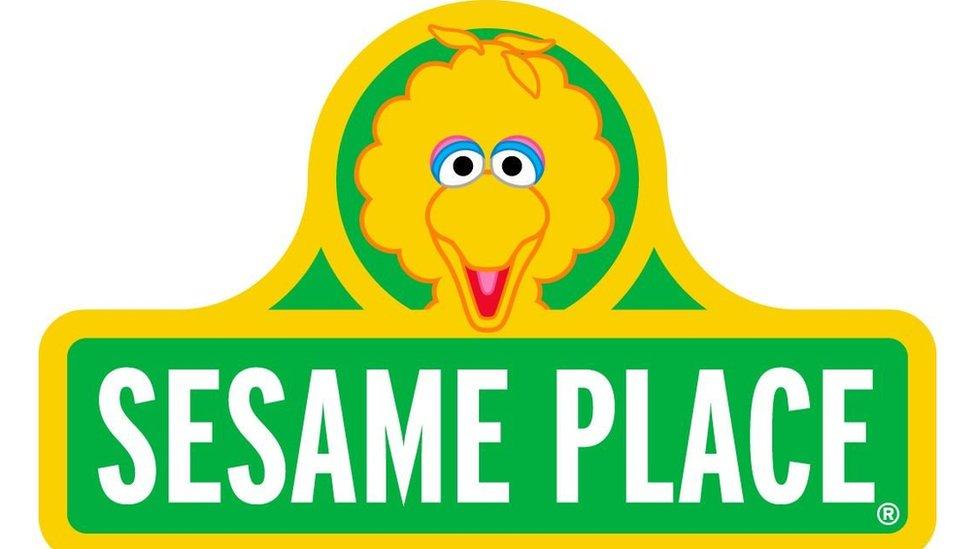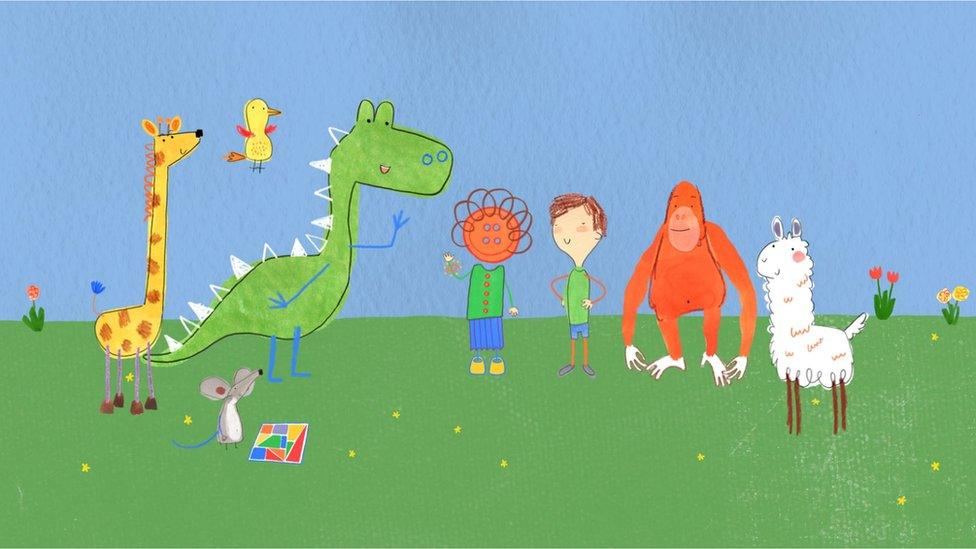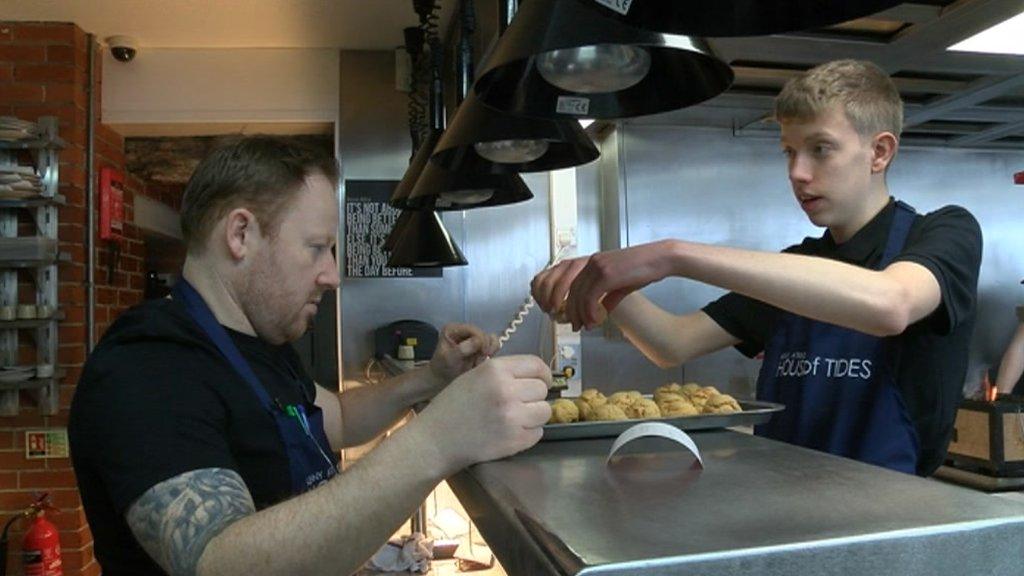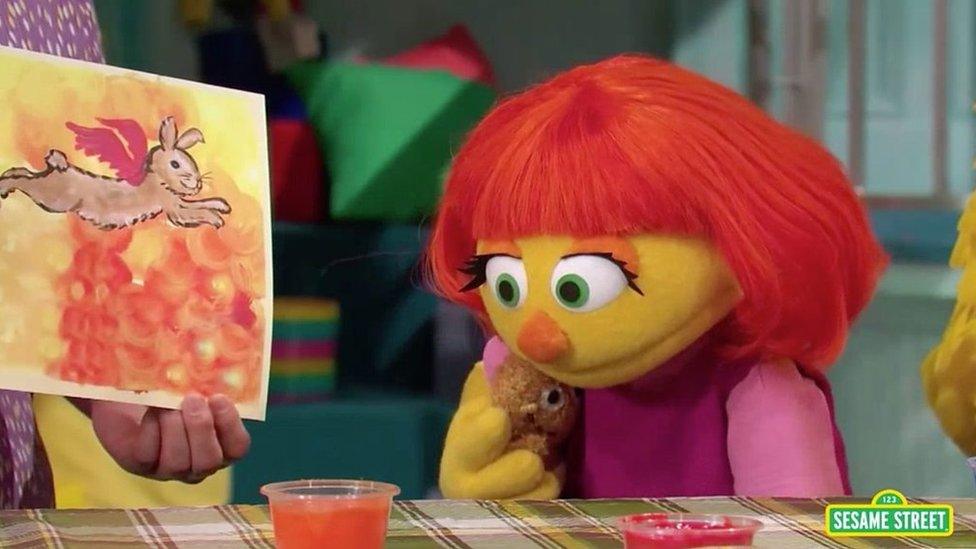Sesame Street theme park receives world's first autism certification
- Published

A theme park in Philadelphia has become the first in the world to receive an autism accreditation.
Sesame Place, which is based on the popular children's TV show Sesame Street, was granted the award after its staff completed training on autism sensitivity and awareness.
The park will include quiet rooms for children and a sensory guide to help parents plan their visits.
Last year, Sesame Street introduced its first character with autism.
Julia became Sesame Street's first character with autism last year
The park received the award as part of the US National Autism Awareness Month and will reopen for its new season at the end of April.
While Sesame Place is the first to receive the autism certification, other parks have moved to adapt their facilities to accommodate guests with autism.
In March 2017, Legoland's Florida resort introduced quiet rooms, illustrated guides and free passes to allow guests to bypass queues at popular attractions.
What is autism?
Autism is part of a range of conditions known as autistic spectrum disorders (ASD).
It is a lifelong development disability that can cause problems with social interaction, language skills and physical behaviour.
With Asperger syndrome, a milder form of autism, children are often of average or above average intelligence, but likewise experience symptoms affecting behaviour and social interaction.
In the most severe cases, a person with autism may be almost unable to communicate and need round-the-clock care.
Autism diagnoses have increased in recent years, although this is believed to be due to a better understanding of the condition. More men and boys are currently diagnosed than women and girls.
What is the designation?
Sesame Place was given the award by the International Board of Credentialing and Continuing Education Standards (IBCCES), a body that provides international autism certification to the health and education sectors.
The theme park's new certification means that all employees receive ongoing training in the "skills, temperament and expertise" needed to work alongside families and children with special needs.
People with autism often struggle with sensory overload, meaning that queues, loud noises and bright lights can all be overwhelming.
Two specially designed quiet rooms are available on-site, while the sensory guide enables parents to plan how each attraction could affect their child's sensory processing issues.
- Published2 April 2018

- Published2 April 2018

- Published12 April 2017
